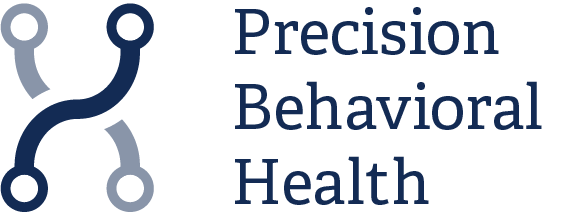Behavioral health issues like depression and more serious conditions like bipolar disorder don’t often manifest with the kinds of clear, outward symptoms that presage something like the common cold.
For people who deal with these health challenges, signs of depression and other changes in mental health can manifest in behaviors, which means a user’s devices — “precision technology” like smartphones and smartwatches, and other sensing IoT [Internet of Things] gadgets — can accurately and continuously monitor these shifts.
Cornell University’s Tanzeem Choudhury, a leader in mobile health, sees incredible potential here in the area of behavioral health, a term encompassing all aspects of mental wellbeing. If smart devices are able to capture data related to our behaviors, why not put that data to use and leverage machine learning to help willing individuals — in coordination with their doctors — better monitor and manage their behavioral health?
Especially for people with bipolar disorder or schizophrenia, such technology would prove critical in identifying early-intervention treatments, according to Choudhury.
Choudhury Tanzeem 2019.jpg

To that end, Choudhury — the Roger and Joelle Burnell Professor in Integrated Health and Technology at the Jacobs Technion-Cornell Institute at Cornell Tech in Information Sciences — this past fall launched the Precision Behavioral Health Initiative, a collaboration between health industry professionals and faculty and students throughout Cornell Computing and Information Science. Based at Cornell Tech in New York City but spanning Cornell’s Ithaca, NY, campus and Weill Cornell Medicine, the Initiative aims to usher mobile health into a new, AI-driven phase that bridges prevailing gaps in accurate measurement, customized intervention, and clinical impact.
“There’s a lot of cool technology out there and really innovative sensors and home devices that can understand users and user behavior,” Choudhury said. “The challenge for the Initiative is, how to take this volume of user data and interpret it into meaningful health metrics to be used by doctors and clinicians to understand patients’ mental health and provide the best treatments?”
Precision Behavioral Health Initiative logo.png

While the advent of smartphones, apps, and other smart devices birthed the field of mobile-health and raised the prospect of a more efficient, integrated and personalized level of care, it’s a reality that has yet to fully materialize. There are thousands of apps available for willing users to assist in mental wellbeing and mental-health monitoring, but, as Choudhury noted, these tools are rarely — if ever — validated by clinicians, nor do they deliver behavioral data in ways that make sense to doctors. What’s missing are sound AI systems that can look for patterns or irregularities in the behavioral data and clue users and their doctors in early on intervention strategies. Most importantly, Choudhury stressed, clinicians need to be involved in the design and implementation of such systems.
“Data is overwhelming, and so far, we haven’t delivered information that is actionable to clinicians,” she said. “We don’t take into account how to integrate technology into the clinical workflow.”
Adding to the complexity of the Initiative’s aim is the fact that collaborative care — a scientifically proven model in which psychiatric services and primary care physicians work hand-in-hand in treating patients — is difficult and takes real, human effort, she added.
“Collaborative care is hard to scale,” she said. “My vision would be to allow for that scaling.”
Choudhury and the Precision Behavioral Health Initiative understand that scaling up, and doing so while ensuring patient privacy, will take more than a team of leading technology scholars. That’s why the Initiative includes physicians, therapists, medical researchers, and healthcare professionals as well as Cornell faculty and student technology leaders.
PBHI-graphic-banner.jpg

Each has an equally important role in the Initiative, according to Dr. David Mohr, professor at the Feinberg School of Medicine at Northwestern University and an Initiative advisor: Clinicians provide guidance on conditions, treatments, risks, and psychological strategies; leaders from healthcare organizations inform technology design that meets the needs of their organizations, and human computer interaction scholars synthesize all of that guidance and transform it into sound, seamless technological systems.
“Success in digital mental health will come when we work together at the boundaries of our domains,” said Mohr, who directs Northwestern’s Center for Behavioral Intervention Technologies.
Student researchers echo this collaborative ethos as well.
Success in digital mental health will come when we work together at the boundaries of our domains
Dan Adler, a doctoral student in Information Science at Cornell Tech, is a member of the Initiative and helps in the design and implementation of the machine-learning algorithms that monitor behavioral health data. He said he’s a technologist first and foremost, but he understands the algorithms he designs can only do so much.
“Algorithms are good at handling a lot of data and finding complex relationships, but we need people to interpret what the algorithm finds,” Adler said. “What’s often more important than developing an algorithm that predicts something is determining what we do with the information.”
Transforming raw data into meaningful indicators for better patient outcomes is the ultimate goal, one which requires interdisciplinary knowledge from a diverse group of scholars, both Choudhury and Adler said.
To Greg Morrisett, the Jack and Rilla Neafsey Dean and Vice Provost of Cornell Tech, the Initiative reflects the power of cross-campus collaboration at Cornell.
“I am so excited about the work that Computing and Information Science professors and their students are pioneering, not just because it can have a tremendous impact on our health and well-being, but also because it is building lasting bridges between researchers at Cornell Tech, Weill Cornell Medicine, and the Ithaca campus,” Morrisett said. “That coordination between people who really understand both the medicine and the emerging technology, and that can put it to work in a clinical setting, is extremely valuable.”
The Precision Behavioral Health Initiative is forging a network of collaborative partners. The group's research falls outside the realm of traditional funding and requires visionary contributors to partner for the greater good and to bring research to practice. To get involved, contact Professor Tanzeem Choudhury at tanzeem.choudhury@cornell.edu.
* * *
Louis DiPietro is the communications coordinator for Information Science.



